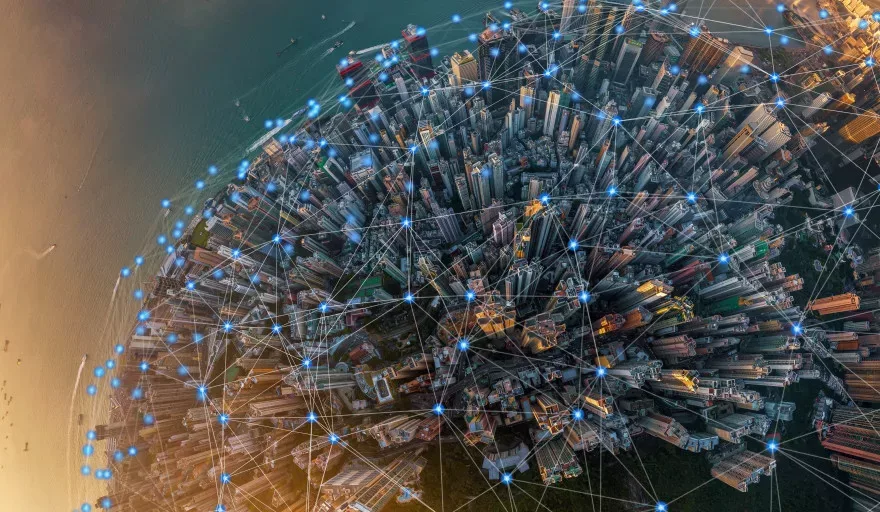Orange’s Patrick Roussel examines the challenges faced when ensuring financial inclusion across Africa, highlighting the power of mobile money as part of the answer.
INTRODUCTION
Vast areas of the developing world continue to struggle with financial inclusion.
According to the latest Global Findex report, there is somewhere in the region of 1.7 billion adults globally who are unbanked. Unsurprisingly, the vast majority of these people live in low-income economies. 67 percent of the population of developing countries worldwide do not have a bank account, this is compared to 95 percent in the developed world.
This problem is not new, and a lot has been done to correct this imbalance. However, with figures such as these, it is clear that more can, and needs to be done to provide people with the financial services they need for their own prosperity, in turn benefitting the broader economy.
BARRIERS TO FINANCIAL INCLUSION
There are many reasons for an individual to be financially excluded. However, there are a number of reasons which crop up time and again when the unbanked are surveyed, especially in the developing world.
The first and probably the most obvious comes down to affordability. Bank accounts are either too expensive, or individuals simply do not have enough funds to warrant having a bank account. In most of the developing world, there is a strong correlation between low-paid, informal or seasonal workers and being unbanked.
Another reason frequently cited is that the financial infrastructure simply does not exist to support unbanked populations around the world. This can be a simple matter of distance – in large swathes of low-income countries, people live in rural or remote locations where the nearest bank or financial institution is too far away. While in high-income countries we use credit or debit cards extensively, bringing convenience, their use in developing countries is far less ubiquitous.
Finally, having a less extensive and less mature financial infrastructure can lead to a heightened risk of crime, fraud and therefore distrust of financial systems. As a result, borrowing in many African countries, to take one region, is done informally and outside of financial institutions. In Africa, 83 percent of loans are concluded in this way, outside of the protection of regulation.
THE IMPACT OF MOBILE MONEY
In recent years, mobile money has seen huge success in providing many of the most basic financial services to people who previously did not have access to them. Not only has the digitisation of payments helped to reduce the cost of distributing and receiving payments, it has also reduced associated crime and corruption by increasing transparency of transactions.
It is no surprise that mobile money has taken off in the ways that it has, especially in Africa.
Due to the growing availability of affordable devices, globally two-thirds of unbanked adults own a mobile phone, allowing instant access to mobile payments. Having a mobile device that can be used for simple financial transactions removes many of the frequently cited barriers that people face. The ability for people on low incomes to make small digital transactions has integrated millions of people from disadvantaged populations into the banking system. This increase in financial inclusion also allows these populations to take part in their country’s economic and societal development.
With our own Orange Money service, we are processing €1 billion of cash every week and we are among a number of others providing mobile money services in the region.
However, as impressive as the success of mobile money has been in Africa, there is more that can be done to promote financial inclusion. Whilst having a mobile money account is a clear first step into the formal financial system, until people have the ability to effectively save money, manage financial risk or take out suitable loans, then they are yet to benefit from everything that genuine financial inclusion has to offer.
ORANGE BANK AFRICA
This is why at Orange we decided to expand our bank services to Africa beyond mobile money.
Orange Bank Africa takes the success of mobile money further by offering loans and savings services geared towards non-employee customers, with seasonal and low income, or those that live in rural or remote areas as well as SMEs. Our bank will offer simple loans that most importantly are within everyone’s reach and meet a wide range of needs.
We decided to launch first in Cote d’Ivoire, a country where we already have a strong mobile money base and trusted brand. In Côte d’Ivoire, there are around eight million adults who are unbanked, and many of them are already in vulnerable positions. However, there are also over 5.2 million adults in the country who are unbanked but own a mobile device. Until we provide instant access to mobile financial services, designed specifically to suit these disadvantaged populations, then attempts to increase financial inclusion will simply remain stalled.
With plans to expand Orange Bank to Mali, Burkina Faso and Senegal, Orange Bank Africa aims to illustrate a new way to integrate a large part of the population who have traditionally been excluded from conventional banking. Orange’s financial services strategy in West Africa is specifically designed to offer solutions that are accessible to the broadest possible range of people, regardless of their income, or their location.
We believe that mobile banking has a highly significant role to play in Africa and it is the very essence of our intention to provide everyone with the keys to a responsible digital world.































